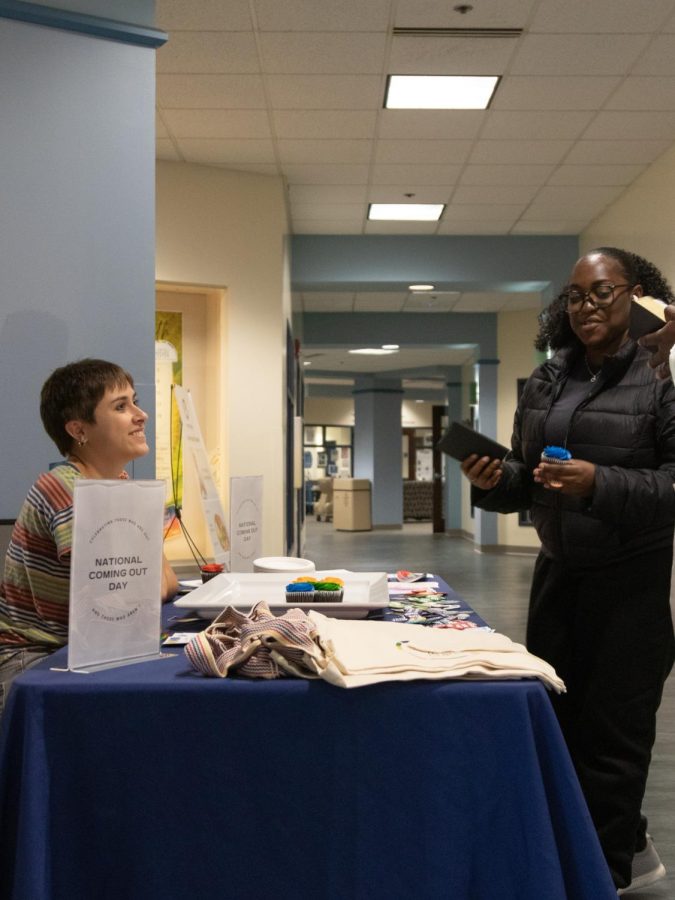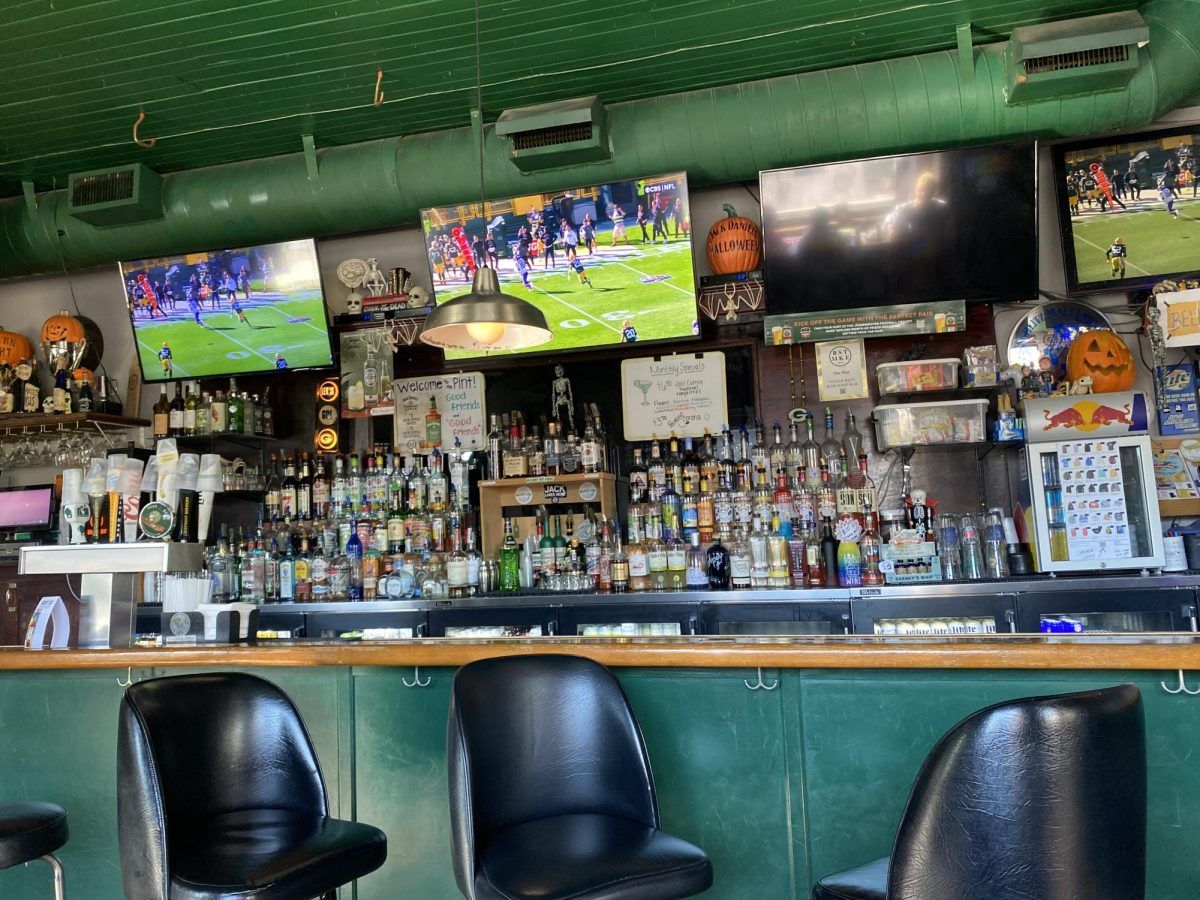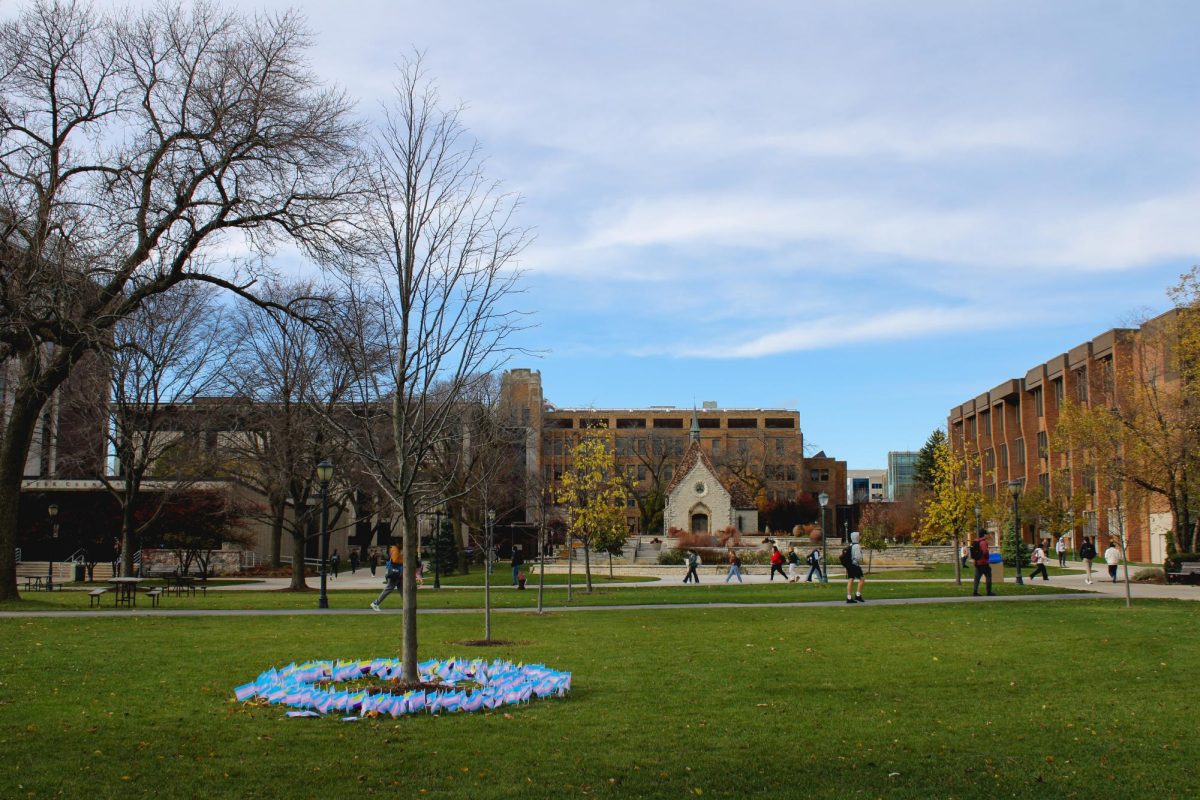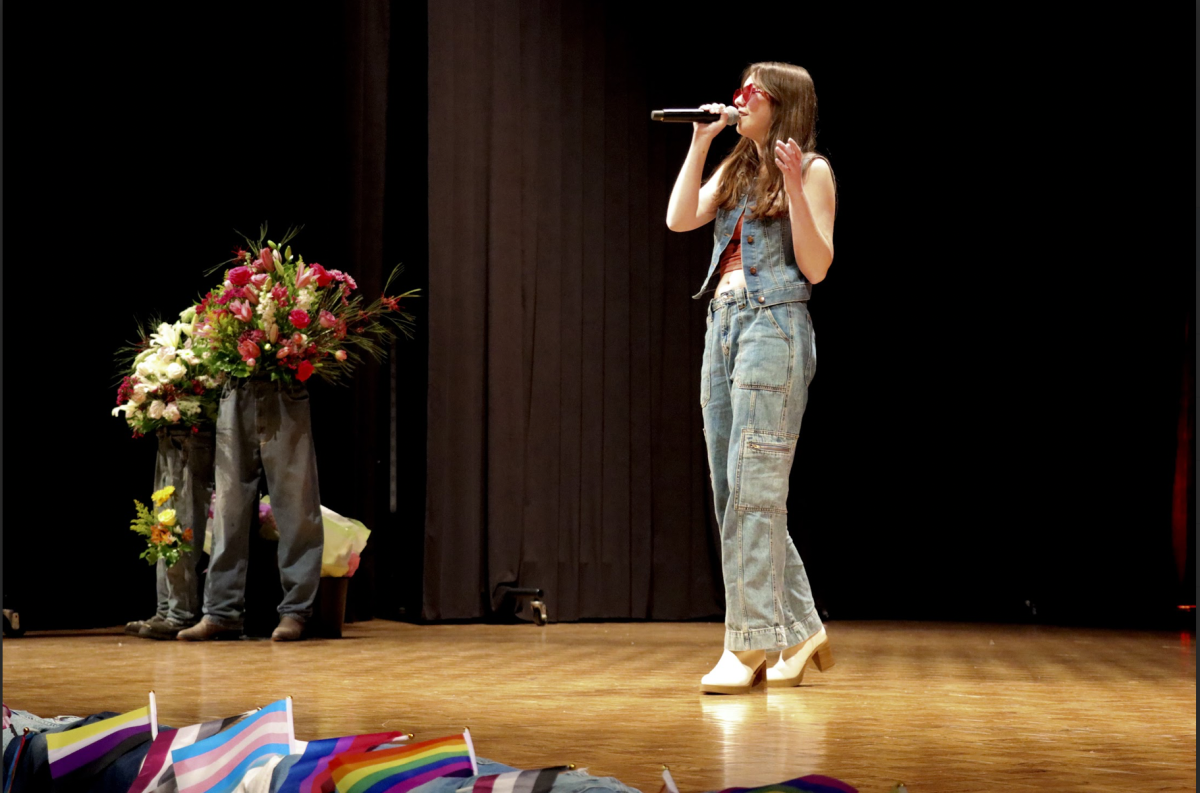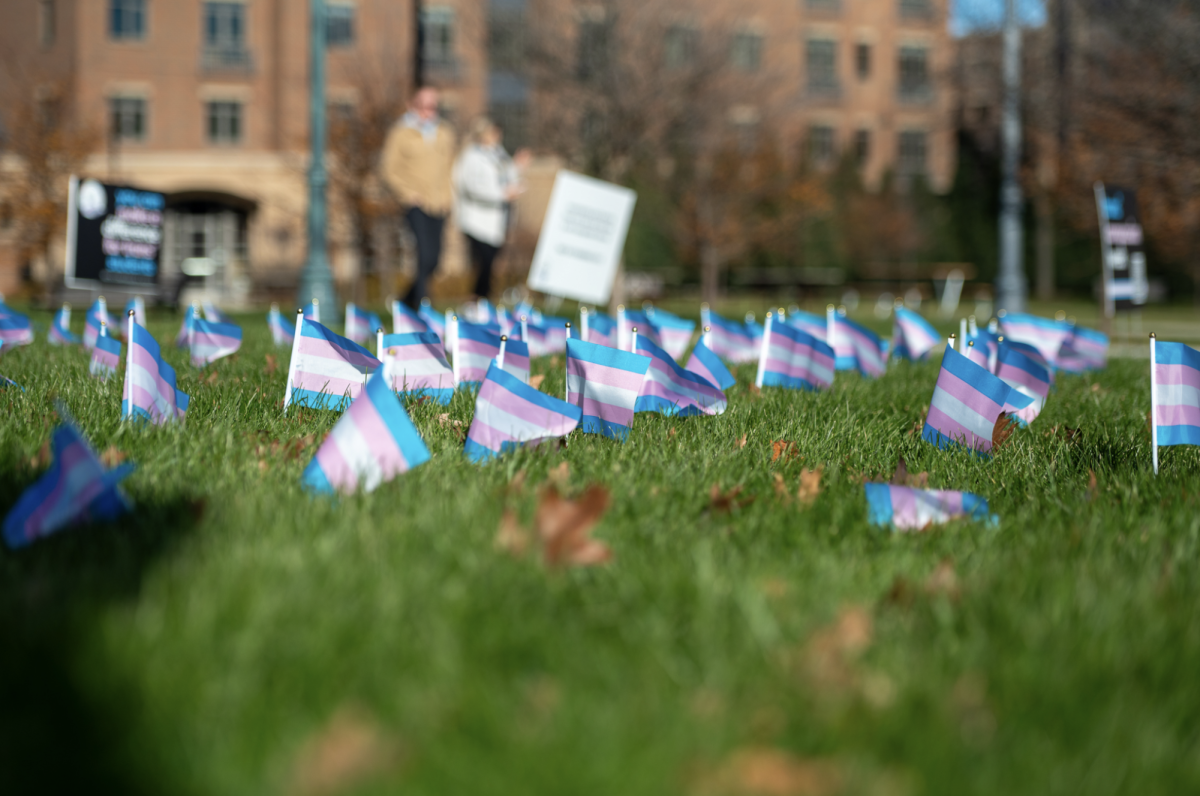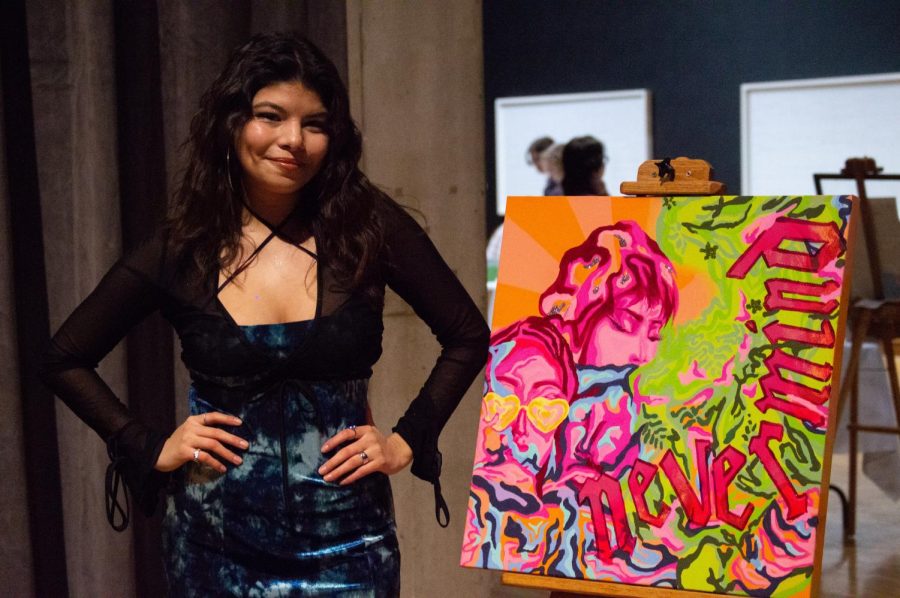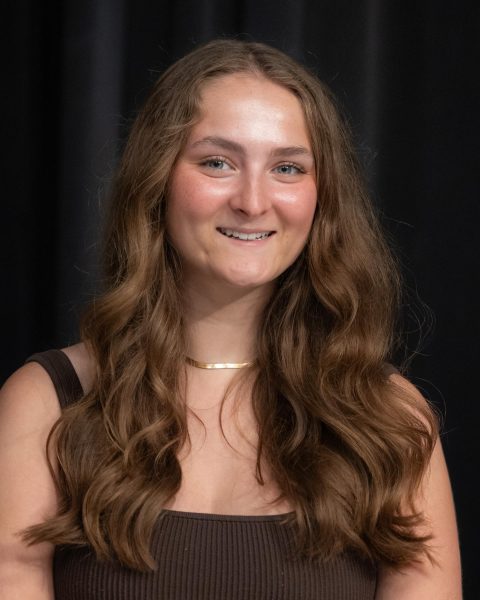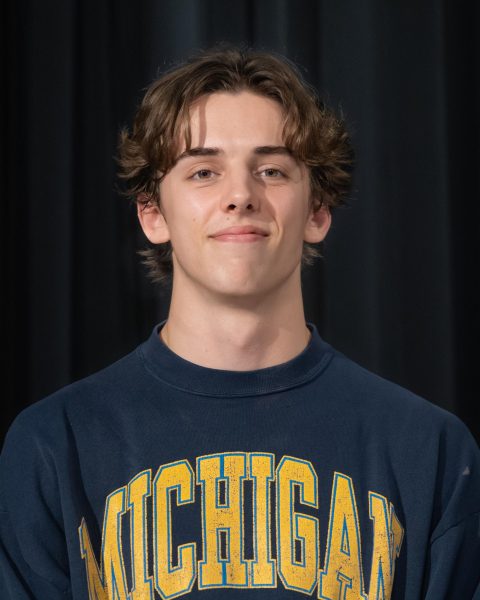“I think when it comes to someone’s gender, romantic or sexual minority identity, that’s really personal and everyone’s experiences are different,” Emma Wuetrich, assistant director of Marquette’s LGBTQ+ Resource Center, says. “Everyone’s going to have their own valid experience.”
Nicole Ferch, a first-year at Marquette’s law school and member of Out & Allies, says that although Marquette is a Jesuit institution, she’s felt welcomed on campus and says this university has offered the most resources for her and an LGBTQ+ organization.
Out & Allies is an organization in the Law School that supports LGBTQ+ community members and advocates for LGBTQ+ views in legal studies.
“Here at Marquette, I think a lot of people are intimidated because it is a religious university, so I think there might be stuff in people’s mind about maybe they’ll be biased against you because you’re a part of the community, but I’ve not felt that at all,” Ferch says.
Ferch says that Marquette has always been supportive of other organizations on campus, so she just hopes that the university will show its support for Out & Allies and everything that the group wants to accomplish.
Jonah Debeir, a first-year at Marquette’s law school and member of Out & Allies, says a big part of feeling welcomed at Marquette is discovering a community with people like yourself. Debeir says if he ever had an issue with homophobia, he would most likely turn to the people in his organization since they’d be the most understanding.
“I think resource-wise, there’s really good communication between the students and the upper-level deans,” Debeir says. “If you ever need anything from any of the deans, no matter what their position is, their office is always open, and you can go and talk about whatever you want confidentially.”
Ferch says a big part of her application for Marquette’s law school was her personal statement, where she discussed being part of the LGBTQ+ community. In the past, she says her education was impacted because she didn’t have a safe environment due to her sexuality.
“I was very forward with that and with them,” Ferch says. “They chose me to come to the school and I was very clear about what my situation was and I think that’s very telling about who they want representing their law school, so it made me feel even safer here because I was very blatant about my situation and what I wanted out of a school.”
Also using his personal statement in his application for law school, Debeir says that he wrote about his sexuality too and the growth he’s made being a pastor’s child.
Despite being at Marquette for a couple months, Debeir says that his experience has been positive. He says that the people and professors have been really supportive of everything that an LGBTQ+ student could face. However, his experience in higher-level education wasn’t always positive.
Debeir first attended the University of Missouri and transferred after a semester to DePaul University after not realizing how conservative the school was, despite being from Missouri.
“I think the biggest turning point for me at Mizzou was walking around and I would see on the sidewalks someone just scribbled the ‘f’ slur in chalk and I’m like ‘Cool, okay, I’m just going to fill out my transfer application now,’ but I think going to DePaul definitely helped me a lot more like explore my sexual identity and be more comfortable with myself,” Debeir says.
Rosa Aguilar attended Marquette until November 2021. She says she decided to leave because of mental health reasons.
Aguilar says she received a lot of support from her professors and especially from Phillip Rocco, associate professor of political science, when she had to take medical leave and when she eventually decided Marquette wasn’t the best fit for her.
Although Aguilar says she had a lot of support at Marquette and people respected her gender identity, part of her reasoning for leaving did have to do with her being trans.
“I think in general, when I was at Marquette, the university didn’t really promote LGBTQ+ events as much,” Aguilar says. “Our funding was very limited, especially compared to other clubs or especially for sports teams.”
Aguilar hopes to attend the University of Illinois Chicago in the future as she feels UIC offers more LGBTQ+ resources for the community than Marquette does.
Marquette also offers resources for faculty and staff who are part of the LGBTQ+ community. Rick Boyd, adjunct professor of physics, and Patrick Correia-Harker, assistant director of national recruitment, are co-chairs of the LGBTQ+ Employee Resource Group. Correia-Harker says the ERG hopes to bring a bigger sense of community and inclusivity across campus.
“We are perhaps a little bit unique compared to some of the other employee resource groups on campus where we have the population that does identify and the mixture of others that are allies and we try to always be really sensitive to that,” Boyd says.
When Boyd was first deciding if he wanted to work at Marquette, he says he wondered if this would be a good place for him as part of the LGBTQ+ community. Boyd says the LGBTQ+ ERG is comforting.
“We really are designed to help create community among faculty and staff, which then again creates visibility on campus and then in light of how we are operating as a group, naturally we are more visible,” Correia-Harker says.
Correia-Harker says the ERG focuses on supporting everyone on campus, trying to grow visibility and making Marquette more inclusive.
Wuetrich, whose office is located in the center, says the center offers resources like the queer library, queer closet, educational training and social programming to build community and belonging as well as herself. The queer closet is a free resource for students to find gender-affirming clothing.
Marquette University Student Government’s LGBTQ+ initiative group is also working on creating a rainbow floor for a space for queer students to find community and safety in Living Learning Communities.
“I think there are plenty of students that struggle with the culture. There’s a lot of harm that comes from peer students. There’s homophobia, transphobia and moments of exclusion that are harmful kind of all the time. I think some of the systems can keep growing with what our students need,” Wuetrich says.
Wuetrich doesn’t think the spaces are perfect, however, throughout her time at Marquette, she says she has seen Marquette grow and improve its inclusivity of the LGBTQ+ population on campus.
“As much as there is growth and things I could put down on a piece of paper, that doesn’t mean students don’t have difficult times here. There are plenty of individual students who’ve had tough times here. I would love to see more of the culture support those folks,” Wuetrich says.
Wuetrich says she hopes Marquette will support those students who have not publicly come out yet. Wuetrich says there aren’t many people officially “out” on campus so she hopes to see more accountability for students to minimize any possible harm they may experience.
Wuetrich says it’s great to see students not visit the resource center as much as they continue through college.
“Sometimes it’s great that they’re getting so busy, they’re getting so involved they have so many other leadership opportunities that I don’t see them as much anymore. That’s sad for me, but also it reminds me that they’re doing the thing that they’re supposed to be doing and that’s really sweet to see,” Wuetrich says.
Wuetrich says although she tries to help all LGBTQ+ individuals have a good experience at Marquette, every student is going to have their own valid experience on campus whether that be positive or negative, everybody’s is going to be different.
This story was written by Julia Abuzzahab. She can be reached at julianna.abuzzahab@marquette.edu or on Twitter @juliaabuz


